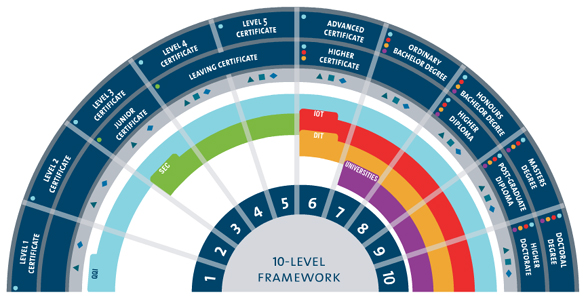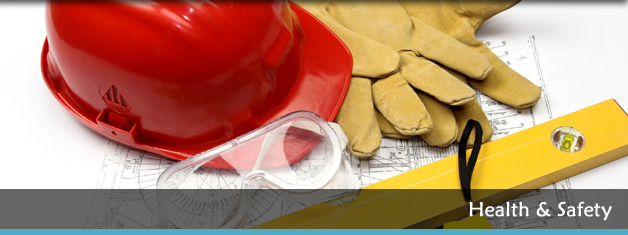Info
Get In Touch
HCT Ltd.
Unit 2, Purcellsinch Business Park
Dublin Road
Kilkenny
Tel.: 056 777 0761
HCT Ltd.is a QQI Accredited Courses Provider (38447H)
QQI (Quality and Qualifications Ireland) is the statutory body for the certification of further education and training in Ireland. All QQI courses awards are quality assured and are placed on the National Framework of Qualifications (NFQ). QQI courses & Accredited Courses Awards range from level 1 to level 6 on the NFQ.QQI role is to:
- Make and promote awards on the NFQ
- Determine standards and award requirements
- Validate programmes leading to awards
- Monitor and quality assure programmes and services
Levels
The National Framework of Qualifications (NFQ) is a system of ten levels. Each level is based on nationally agreed standards of knowledge, skill and competence i.e. what an individual is expected to know, understand and be able to do following successful completion of a process of learning. It recognises through the framework learning from the very initial stages to the most advanced stages and all such learning may be achieved in schools or colleges at work or in the home or community. They are called Accredited courses.Award-Class
As well as this 10 level structure, the NFQ includes different classes or categories of awards. These are different because they reflect a mix of standards of knowledge, skill and competence. This gives the learner the freedom to build their qualifications using accredited courses in ways that suit their needs.There are four classes of award-types:
- Major awards are the main class of award made at a level. You may have heard of some of these, for example the Leaving Certificate, the Advanced Certificate or the Honors Bachelor Degree. There are 16 major awards in the Framework, which can be seen in the diagram
- Minor awards provide recognition for learners who achieve a range of learning outcomes but not the specific combination of learning outcomes required for a major award. These awards allow learners to build up units of learning at their own pace to meet their own needs.
- Special-purpose awards are made for very specific purposes. An example of a special-purpose award is Driving - Heavy Goods Rigid.
- Supplemental awards are for learning which is additional to a previous award. They could, for example, relate to updating and refreshing knowledge or skills, or to continuing professional development.
National Framework of Qualifications (NFQ)

QQI and Common Award System
In November 2012 QQI was established under the Qualifications and Quality Assurance Education and Training Act, to replace the 4 existing awarding bodies and quality assurance responsibilities in Ireland. (FETAC, HETAC, NQAI AND IUQB) A new national awards system called the Common Award System has been introduced and by 2014 all QQI Awards will be part of this system. Under the Common Awards System (CAS) all QQI awards will have a common structure, and common characteristics and features such as title, level, volume, profile, assessment and grading. These common awards will be published on www.qqi.ie and available to all QQI registered Providers. Programmes leading to these common awards must be submitted from the Centre for validation and approved by QQI prior to delivery. Former awards, originally developed by NCVA, FÁS, Fáilte Ireland, Teagasc and BIM, are currently being migrated to the new format - the Common Awards System. As soon as this exercise is completed for each level, the former awards will be deactivated and will no longer be available as a basis for certification. In the Common Awards System, Providers may not offer programmes for certification unless the programmes have been validated by QQI. Validation is the process through which QQI determines that the programme developed by the Provider is fit for purpose; that it will give the profiled Learner the opportunity to meet the standards for the award(s), that it is appropriate to the Learner and that it fulfils the award requirements. Each major award under the common award system will be awarded a total set amount of credits and these credits will need to be accumulated through achieving a number of minor awards.
The programme duration will be determined based on the credit value and its recommended length. These will be broken into two sections, directed and self directed hours. Directed hours are the hours directly spent delivering the programme to the participant either face to face or via direct online contact. Self directed hours are where the learner takes control of their learning, this could include work experience, research or reading subject related information. Participates will be able to import a limited amount of credits from a level lower or higher than the award they are working towards. The credit value system has been created in Ireland to become more in line with other European countries and to provide learners with more mobility and recognition.
| LEVEL | CREDIT VALUES FOR MAJOR AWARDS | DEFAULT MINOR CREDIT VALUES | OTHER PERMITTED CREDIT VALUES | SPECIAL PURPOSE AND SUPPLEMENTAL AWARDS |
|---|---|---|---|---|
| L1 | 20 | 5 | 10 | N/A |
| L2 | 30 | 5 | 10 | N/A |
| L3 | 60 | 10 | 5, 20 | 5 and 60 |
| L4 | 90 | 10 | 5, 15, 20 | 5 and 90 |
| L5 | 120 | 15 | 5, 15, 30 | 5 and 120 |
| L6 | 120 | 15 | 5, 15, 30 | 5 and 120 |
You need to be careful and know what award you are getting from a programme. i.e. is it a component certificate or is it a major award? You can generally judge by the number of contact hours. A minor award or component certificate can be completed in 30 or more contact hours. Whereas a major award will take you 240 or more contact hours to complete. However you can be sure if you enrol on a programme which has QQI accredited courses that the organisation delivering the programme has been through a rigorous quality assurance check and that the programme is monitored independently by QQI.
From QQI Guidelines for Preparing Programme Descriptors, May 2010
Guideline Directed and Self-Directed Duration Ranges
These tables are intended as a guide for providers in establishing programme durations. Providers can devise directed/self-directed ratios that fall outside the guidelines set out below. Where this is the case, the provider may be required to supply additional details that support a rationale for an exceptional duration.Directed Hours
Directed hours are the hours the provider spends directly delivering the content of the programme to the learner. They include class contact, direct online contact, assessment and laboratory time. They can include work-based direction, where there is a tutor and or instructor on-site delivering content.Self-Directed Hours
Self-directed hours are the hours where the learning is learner-lead. They include practice time, work experience, preparation, study time and reflection time.| SPECIAL PURPOSE, SUPPLEMENTAL AND MINOR AWARDS | ||||
|---|---|---|---|---|
| Level | Credit Values | Typical Learner Effort in Hours | Programme Directed Range | Programme Self-Directed Range |
| 1-6 | 5 | 50 | 15-50 | 0-35 |
| 10 | 100 | 30-100 | 0-70 | |
| 15 | 150 | 50-130 | 20-100 | |
| 20 | 200 | 80-160 | 40-120 | |









